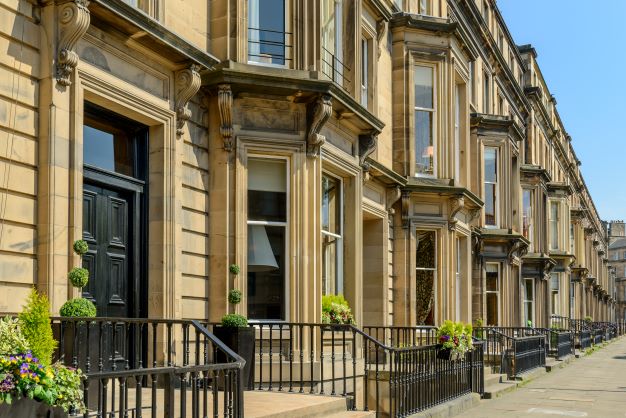As a home buyer or seller, one of the many things you have to think about is who will handle the conveyancing. Conveyancing is transferring ownership
As a home buyer or seller, one of the many things you have to think about is who will handle the conveyancing. Conveyancing is transferring ownership of a property from one person to another, and it’s a big job. Many things go into it, and if not done correctly, it can cause all sorts of problems down the road. So, what do conveyancers don’t want you to know?
One thing that conveyancers won’t want you to know is how a conveyancing cost is not straightforward and that you may overlook hidden charges. You also need to understand that the cheapest quote isn’t necessarily the best value for money. And most importantly, they may not tell you that using the same conveyancer as the seller is a bad idea.
Do you crave more information about what conveyancers do and what they don’t want you to know? Read on. In this post, you’ll also have an idea of the conveyance process in general.
How Does the Conveyance Process Work?
The conveyancing process is the legal transfer of property ownership from one person to another. It can be a complex process, so here’s the conveyancing process step by step for your better understanding:
Conveyancing begins with the buyer making an offer on the property. Once the offer is accepted, both parties draw up and sign a contract of sale. Then, the buyer arranges a building and pest inspection and obtains finance if they take out a mortgage.
The conveyancer will then conduct searches on the property to make sure there are no outstanding debts or encumbrances against it. They will also prepare the transfer of title documents and organize the settlement. On settlement day, the buyer pays the purchase price balance and takes possession of the property. Finally, the conveyancer lodges the transfer of title documents with the Land Registry Office to complete the conveyancing process.
What Do Conveyancers Do?
The conveyancers’ responsibility relies on handling the legal aspects of buying and selling property. They will prepare and review all of the necessary paperwork and liaise with the other party’s conveyancer to ensure a smooth transaction.
Conveyancers will also:
- Search for any restrictions or easements on the property
- Request a land valuation from the local council
- Organize a property report and pest inspection (if required)
- Prepare a settlement statement
- Attend the settlement and exchange the contract of sale for the title deeds
- Register the transfer of ownership with the Land Registry Office
What Do Conveyancers Don’t Want You to Know?
Now that you know what conveyancers do, here’s what they don’t want you to know.
1. The Cost of Conveyancing Is Not Straightforward
The cost of conveyancing is not always straightforward. You may be quoted a fixed fee, but there may be additional charges that you’re not aware of. Conveyancers won’t tell you that the cheapest quote isn’t necessarily the best value for money. So, learn to compare offline and online conveyancing quotes from different conveyancers to get the best deal.
2. You Don’t Need to Use the Same Conveyancer as the Seller
You don’t need to use the same conveyancer as the seller. It’s often a good idea to use different conveyancers to avoid potential conflicts of interest.
3. The Conveyancing Process Can Be Time-Consuming
The conveyancing process can be time-consuming, so it’s essential to be patient. Most of the time, it takes several weeks (or even months) to complete.
4. There’s a Lot of Paperwork Involved in Conveyancing
There’s a lot of paperwork involved in conveyancing, so make sure you’re prepared for it. This includes the contract of sale and various reports and documents that need to be signed.
5. You Need to Be Organized
It’s essential to be organized when buying or selling property to avoid delays. Make sure you have all of the necessary paperwork ready to go and understand the conveyancing process.
6. Conveyancers Are Not Property Experts
Conveyancers are not property experts, so don’t expect them to give you advice on building repairs or renovations. If you need expert advice, you should speak to a qualified tradesperson or solicitor.
7. You Don’t Need to Use a Conveyancer
You don’t need to use a conveyancer, but it’s generally a good idea. Conveyancers are experts in the legal aspects of buying and selling property, saving you a lot of time and hassle.
8. You Can Do Your Own Conveyancing
You can do your own conveyancing, but it’s not recommended. It’s a complex process, and there’s a lot of paperwork involved. If you’re not familiar with the law, you could easily make a mistake.
9. Conveyancing Is Not Always Smooth Sailing
The conveyancing process is not always smooth sailing despite what conveyancers may tell you. There can be delays and problems along the way, so it’s essential to be prepared for them.
Conclusion
It’s good to use a conveyancer to save you time and hassle when buying or selling a property. They’ll make sure the process goes smoothly. Just remember that the cost of conveyancing is not always straightforward, and you need to be prepared for the paperwork involved.



















































































































COMMENTS